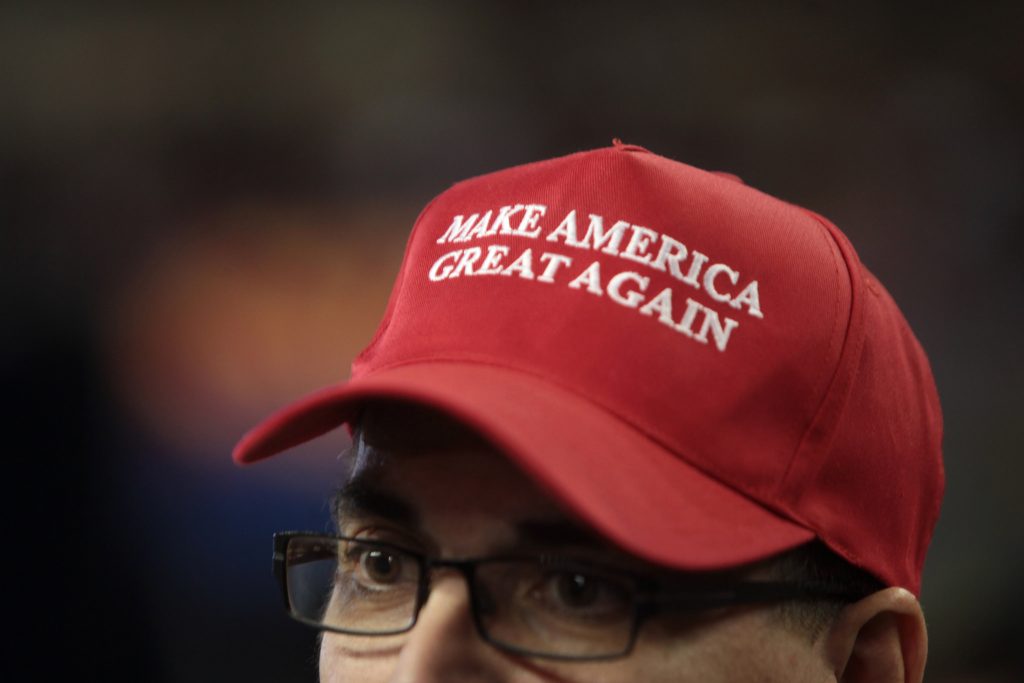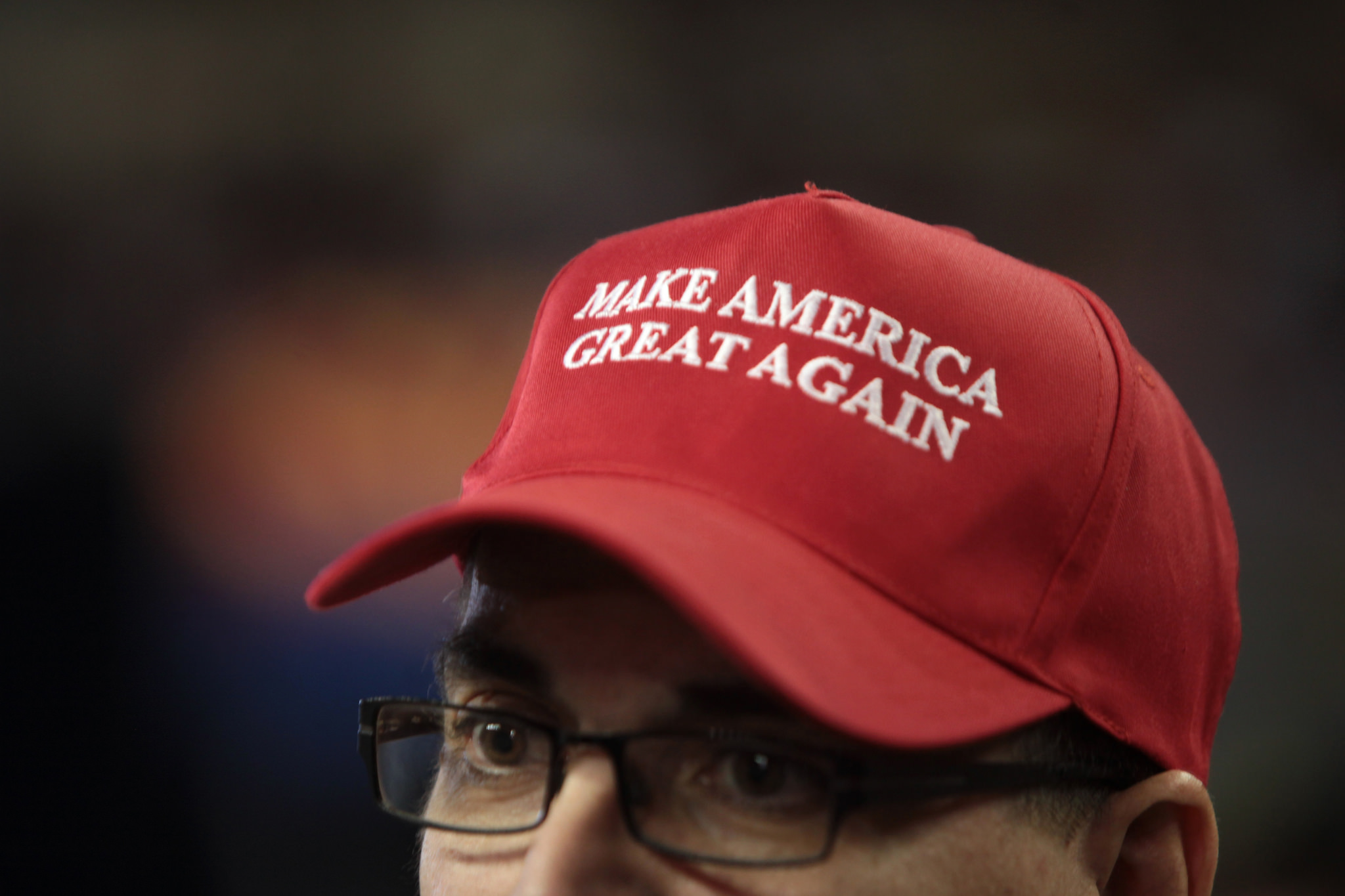Make America Great Again? Like When?
When we say “Make America Great Again” what do we mean, and for who?


Presumptive Republican nominee Donald Trump has become notorious on the campaign trail for a ubiquitous — if not ill-fitting — red baseball cap reading “Make America Great Again.” It’s a campaign slogan that’s become synonymous with his desire to build a following among disenfranchised Americans.
But who is he appealing to with his slogan, and what is the era that they perceive as better than today? When was America greater? We want to hear from you. What is the year in American history or your personal history that we, as a nation, should aspire to recapture? Or is this great experiment known as America better today — even if imperfect — than ever before?
As Stephen Henderson wrote this week in the Detroit Free Press:
I fear Donald Trump’s presidential campaign slogan, “Make America great again,” is appealing to national ego and nostalgia. And the fervor it whips up is dangerous in its whitewashing of the internal failings and conflict that have defined our union from the start.
Read in the worst way, it’s a cynical appeal to those Americans who long for a time when the inequality baked into our government and culture had a more profound effect than it does today…
As mantras go, it’s actually not bad. Rhetorically simple, like “change you can believe in,” Barack Obama’s 2008 slogan. Inarguable in its conceit, like “peace and prosperity,” Dwight Eisenhower’s campaign theme in 1956.
But it’s also deeply complex, both in a way that I suspect Trump understands and maybe in ways his supporters don’t really acknowledge.
“It’s been an explicit racial appeal,” says Marc Kruman, professor of American history at Wayne State University. He says it’s an “appeal that is clearly not just white men, but uneducated white men.”
Kruman says Trump’s message speaks to declining opportunities for white men who could have gotten good factory jobs in the 1950s and ’60s.
“‘Greatness,’ at least for Trump, is associated with power.”
Click on the link above to hear the entire conversation on Detroit Today with Stephen Henderson.
